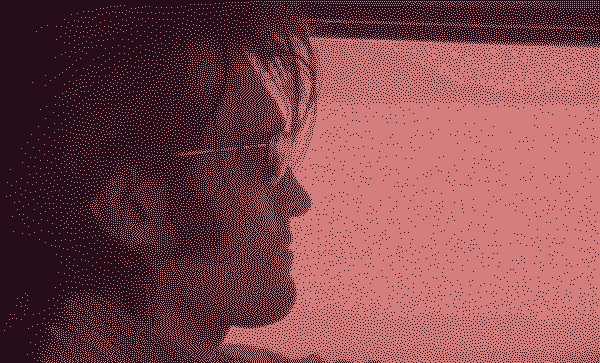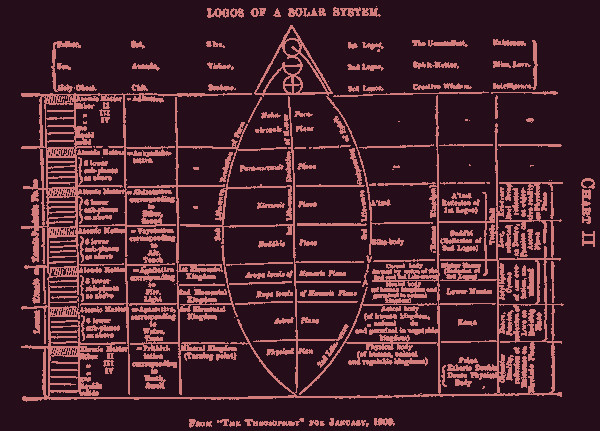isola

Youth Mourning. As before, it took about an hour to do. Regrettably, next week there won't be a painting; the last wave of midterms is upon us!
In idiot I wondered at the lack of relationship between the words isle
and isolation
. It's true that the former has the elided s
, but the naive thing to do would be the connect the two, seeing an island as an isolated piece of land. False friends, they're everywhere.
Linguist Michiel de Vaan brought up the suggestion that isle
came from the description of being in salt
, though he himself said this is doubtful.
Still, it offers a nice image, because an Island need not be in the ocean. There's not even a need for water.

Vincent Gallo as Bud Clay in The Brown Bunny rides his motorcycle over the Bonneville salt flats of Utah, the camera hanging onto his departure long after we lose sight of him in the oppressive white. This is another way of being in salt, i.e., being an island.

Speaking of eliding things, it takes a certain amount of self-elision to admit that one is a lonely person. To admit that one is alone. You can be alone without being lonely, and vice versa
. That's true, but let me for now treat them as the same thing.
Why am I so drawn to hobbies and activities that amount to withdrawing from the outer world?
- Painting, a solitary endeavor, & my heroes are all from the 20th century
- Operating systems & related software, starting from the 1970's, tools that maybe a couple thousand people in the world use
- Literature, necessarily a lonely activity, & my heroes are all dead or dying now
- Ironically, mathematics might be the exception.
saddleblasters visits and revisits this (i, ii), talking about spending his time on things that, in the long run, make him stranger, for lack of a better word. No, that's exactly the word I want to use.
There's a poem by James Tate, Consumed
, with two stanzas that have lived jointly inside of me for a long time:
A dark star passes through
you on your way home from
the grocery: never again are you
the same—
You are the stranger
who gets stranger by the hour.
In the light of James Tate's dark star you become distorted, in the likeness of some aphotic sea animal. Pale, with bioluminescent, tumorous appendages the only light source they'll glimpse in their life on this unrecognizable other-Earth.
As I spend time in these depths, it becomes harder and harder for me to relate to others, when it was already difficult enough before.
Something I have been interested in for a long time is the old, fugitive sects of Christianity that budded and languished before the consolidation of Christendom began with the first Council of Nicaea. In particular, the writings of the Apostolic Fathers (who were contemporaries with the apostles) and the Desert Fathers (who came a few centuries after). And of course, the Gnostics.
The Gnostic doctrine is that the material world and the (false) god who created it are evil. This appeals to no one more than those who feel like they've been dealt the short hand in life—in a meaner word, the losers, as typified by Bernhard's unbearably neurotic protagonist in, well, The Loser.
True, it's a story of very talented men who stumble across the sublime in human form, endowed with unfathomably greater talent; what Mozart was to Salieri, what Wittgenstein might have been to Bertrand Russell. In the light of these angels-come-down-to-earth, these accomplished men see their own shortcomings shaded in unbearable, sharp relief. They lose confidence in their own work, but the Losers in particular are those who can't handle the fact they have lost
.
Then, the world is not even cruel—it's fundamentally broken. You've toiled and suffered for so long, in keeping with every possible convention. Then this upstart comes along with little to no formal training, and renders you obsolete!
But the Gnostics promise that you can study your way to salvation (to know oneself is to know God
) and what's more, those who are unable or unwilling to study are literally of a lower order than you, the so-called hylics who are little better than mouthbreathing beasts.

If you're a lonely young scholar who has turned strange under the orbit of your dark star, who could blame you for being tempted to march under this heretical banner?
Over the span of less than twenty-four hours, I can convince myself beyond certitude that I'm some biological aberration that might as well have just climbed out of a manhole, dripping refuse onto the pavement. Despite this unshakeable belief I choose to go out and meet the world—albeit with a gaze that suggests I'm aware of my own abhorrent image, and will do my best to relieve others of it as soon as possible. Does anyone else feel this way about themselves?
What a terrible and solipsistic way to live. The fact that I can recognize this doesn't make it any better. It's a compulsion: I can't stop thinking about myself. I can't exist in public without being painfully aware of my body's orientation in space.
I feel like a monster when I’m eating. I feel sweaty and gross. I feel like—like if someone touched me while I was eating, I would throw up, or I would explode.
At any given idle moment I am sinking back into my soft body, one made of rotting memory foam.
Recently I was reading a diary entry of notesfromearth which asked:
Is the person I'm presenting to the public really me?
Perhaps that is why I keep meeting the wrong people. I don't let my true self see the light of day, hiding behind a more placid and palatable character.
I'm twenty years old! This question shouldn't have shaken me as much as it did! I feel so stunted—mentally and physically. I'm constantly playing catch-up, treading water.
In high school I was always looking to the future as a kind of reprieve. (The first of many significant mistakes.) I'd find myself as soon as I left the city I grew up in. A city which many deride, though other transients have appraised it with a more balanced eye.
In some ways, it's bugman central, a country whose native inhabitants make up about twelve percent of the populace.
And what a fascinating twelve percent this is. Sons of sheikhs whose Ferraris scream in the night, their cheetahs lying sedated and sinuous in the passenger seat. Oil money spurts geyser-like from every sandy orifice. As for the remaining eighty-eight percent: the lives of migrant workers are reduced to the thick darkness of commutes, which sandwiches their twelve-hour plus work days under the desert sun. Researchers and physicians could read signs of physical strain in Nepalese construction workers' kidneys. So this is modern-day augury.
When I finally went abroad I found that I'd overlooked something so obvious and yet so crucial: wherever you go, you bring yourself with you.
You mean to say after all this time, the very thing you were trying to escape was yourself? What a terrible, trite, overcooked and over-chewed thesis for a blog post. Unsubscribed.
I struggle to write sincerely on this. There are writers on Neocities and beyond who tap into something I can only call the truth. When I read them it's like drinking water so cold and so clean, it hurts.
I want to write like them. I want to let the act of writing cleanse me, these words a solute to the lime and filth accumulating on my insides. If there's a single honest sentence here, it's the following: I feel like I'm losing pieces of myself forever. I feel doomed, in the Old English sense; you know, back when words used to mean things.
The woman I bought a mantilla from thanked me and said, God bless you
. I think it's the first time someone has said that to me directly without any prompting, which is funny, because I was raised Catholic. Though it's hard to believe that you can be saved, or even if being saved should be a priority for you at all until you take your last breath and get a nice glimpse of the spiritual debt you've accrued.
I guess it's hard for me to wrap my head around the fact that a relationship with God can be mediated and strengthened through a whole community of people. This makes sense, religion is fundamentally communal and Protestants' preoccupation with the personal relationship with God is the real break from tradition.
But still, it's their side which I agree with the most—that the best dialogue to have with God is one that involves only him and you. I mean, in a weird sense it's almost Gnostic, the idea that you can read your way to salvation sola scriptura. In a past life I must have been a Puritan on Rhode Island planning a silent and measured revolt against nascent America, back when history used to mean something.
After sundown. I'm walking across the bridge leading to my dorm. It runs precarious over a highway. A small memorial is set up at the midway point: candles and flowers framing a picture of a boy who is far younger than me. Text scrawled on the handrail reads, VUELA ALTO. The passing cars under my feet sound like the surf.
In one of my first writing courses at college the professor pointed out that I didn't need to hide behind the philosophers whose concepts I filched and shoved unceremoniously into the gaps between my paragraphs. A nicer way of saying, drop the pretension. But I didn't learn!
I'm always hiding behind the efforts of other people—movies, prose, paintings—expecting them do the hard, dirty work. But still these are only pixels on a screen. When I close my laptop and walk outside to meet the November sky gone prematurely dark at four in the afternoon, the task still looms over me. There's no reason it shouldn't still be there, but I affect my best impression of indignant surprise.
Vollmer has entered a strange phase. He spends all his time at the window now, looking down at the earth. He says little or nothing. He simply wants to look, do nothing but look.